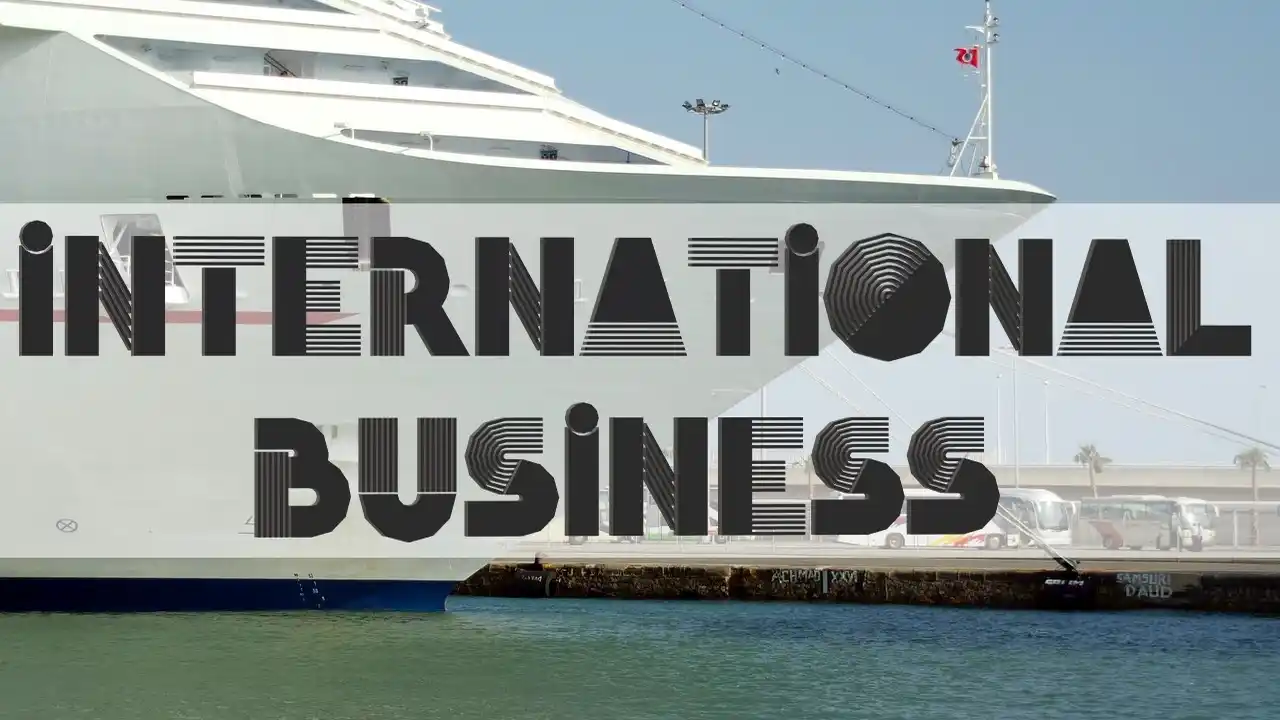Business communication is essential because it enables companies to perform better both internally and externally. It is more likely that businesses will benefit from the skills and abilities of employees if they have and adhere to explicit communication rules. Read on to discover everything there is to know about elements of international business and to become a subject matter expert on it.
Large organizations cannot effectively communicate if they are unable to manage cultural, political, and ethnic differences. There are numerous ways in which these differences could manifest. If businesses want to excel at a broad variety of tasks, they must immediately improve their communication techniques. To gain insights on process of international business, read this article.
Top 12 – Elements of International Business
The majority of inventions originated in these nations, which were also the most developed. Their innovations are evident in products and applications. In addition, the “products and applications” described previously were first implemented in these nations. Consequently, when the global wave of urbanization and commercialization struck, these nations were among the first to experience its effects.
Then, they worked diligently to expand and improve their enterprises. Regarding impoverished countries, things were conducted differently. Due to their abundant mineral resources, these nations could only provide raw materials and act as warehouses for finished products. Read on to discover everything there is to know about elements of international business and to become a subject matter expert on it.
Language Disadvantages
If your company sells primarily to customers in other countries, this may not be a major issue. But if you can readily connect with locals, it will be much less difficult to launch your business.
If you do not speak the language of the country in which you wish to conduct business, you should do everything possible to avoid paying for translation services, with the exception of the most crucial steps (such as examining contracts and/or the business constitution, if one is in place).
When an interpreter is used, the cost will almost always increase significantly. Instead, search for bilingual individuals who can work part-time, either once a week or once a month. Not only should this group be able to assist you with the language when necessary, but they should also be beneficial for general business tasks.
Consider Costs of Currency
Financial institutions in their native nations should collaborate closely with international businesses. Consider the fees associated with exchanging currency. It is essential to understand the magnitude and frequency of currency fluctuations.
When discussing local contracts, it will be useful to have extensive knowledge of various currencies. Elements of international business include foreign investment, multinational corporations, and international trade agreements.
Property Rights and Political Climate
Countries throughout the globe have a history of seizing the enterprises and/or property of non-citizens. Strongly avoid these locations. Others have pristine histories, robust property rights, and allow foreigners unfettered access to their markets. It is essential to locate a location with minimal political risk. Examining an index of foreign property rights can be extremely useful in this situation.
Look for a Partner
A significant number of business owners seek partners in countries where they wish to conduct business. If you want to grow your business internationally and attract investors and financing, you will likely need a management team with international business experience.
The elements of international business encompass various factors such as global trade, cross-cultural communication, and international market analysis.
Financial Situation
A nation’s economic prognosis is typically favorable when it has a low debt-to-GDP ratio, stable or declining unemployment rates, and robust consumer spending. There are several positive economic indicators, including a developing middle class, low inflation, and rising wages. Even if a nation’s economy is in disarray, it is not impossible to launch a profitable business. However, it will likely be challenging.
Industry Knowledge
You don’t always need expertise in the field you choose to enter. Keep in mind, however, that hiring management assistance will increase the cost of launching a business.
Forming a business partnership with a well-known local who already possesses pertinent knowledge and contacts in that field will increase your likelihood of success in that region. Most of the time, it is ideal to seek out situations in which you can contribute more than just money by sharing your expertise.
Cultural Customs
Teach workers to distinguish between naturally occurring errors and misunderstandings caused by language barriers. Employees interpret the communication style of administrators and superiors in various ways. For instance, a phrase that seems acceptable in English may be offensive to a person from a culture in which English is not extensively spoken.
English’s wide global usage makes it the top choice for global communication as the most widely spoken language. Everyone must make an effort to comprehend and account for the different ethnic backgrounds of their coworkers for there to be effective communication at work. Each employee must be aware of their biases and behaviors that hinder productive workplace discussions.
Market Analysis
Expect to spend a significant amount of time researching how people in your area purchase goods and determining how much effort, time, and money will go into promoting your products or services.
Before making a major financial commitment, it’s best to conduct a trial or poll if possible. Not only should you consider the amount of money that must pay to employees, but also how people perform in the country.
Incorporation Process
The International Finance Corporation and the World Bank have a fantastic website that compares the cost, time, and number of steps required to establish a business in 183 different nations. Even though the website is primarily intended for businesses with 10 to 50 employees, it can be useful for those seeking information about businesses of all sizes. This is the elements of international business.
Rights to Property
One company can grant a foreign company a license to use its intellectual property across borders. Each license must manage separately to ensure that the rights of the intellectual property owner are respected in all of a company’s operations. In addition, each nation will have its own set of intellectual property regulations.
International Commercial Law
International business law actively applies legal concepts to cross-border financial and business transactions. It varies from country to country and introduces fundamental business law issues into international trade.
Before launching a global business, an entrepreneur should thoroughly research the laws of each country in which they will operate. This will help them determine which nation is ideal for the deal they are negotiating. Elements of international business include navigating cultural differences and adapting business practices accordingly.
Cross-cultural Competence
Managers must improve their ability to work with people of various cultures in order to adapt to the plethora of changing work environments. They must learn the backstories of their personnel in order to communicate effectively with them. Managers must increase their communication skills in order to comprehend the necessary methods and strategies for obtaining quality work from their employees.
FAQ
How is Foreign Trade Governed?
In the past, nations used treaties to regulate their commercial transactions. After World War II, multinational agreements such as the General Agreement on Tariffs and Commerce (GATT) and the World Trade Organization were the primary means of regulating international trade. (WTO). This occurred at the same time that free trade became the dominant economic concept.
What are the Foreign Trade Barriers?
Tariffs, quotas, and non-tariff barriers are the three most common categories of trade restrictions. Tariffs are duties imposed by the federal government on goods imported into the country. This tax increases the price of the foreign product for the consumer. Tariffs serve two purposes: they limit imports and generate additional revenue through the imposition of fees.
Should a Business Expand Globally?
If you introduce your company or product to an entirely new group of individuals in a growing foreign market, your business could expand significantly. For a seamless transition, however, you must be well-versed in the issues associated with globalization and have a well-thought-out plan for running your business globally.
Final Words
The presenters conclude with a discussion of tools that can assist businesses and their advisors in locating and utilizing data that will assist them in determining the optimal foreign market. The international trade environment is robust and provides exporters with a variety of tools and resources to help them prepare for global competition. The first stage in conducting business abroad is to develop a strategy. The elements of international business will be covered in-depth in this article, along with some examples for your convenience.






